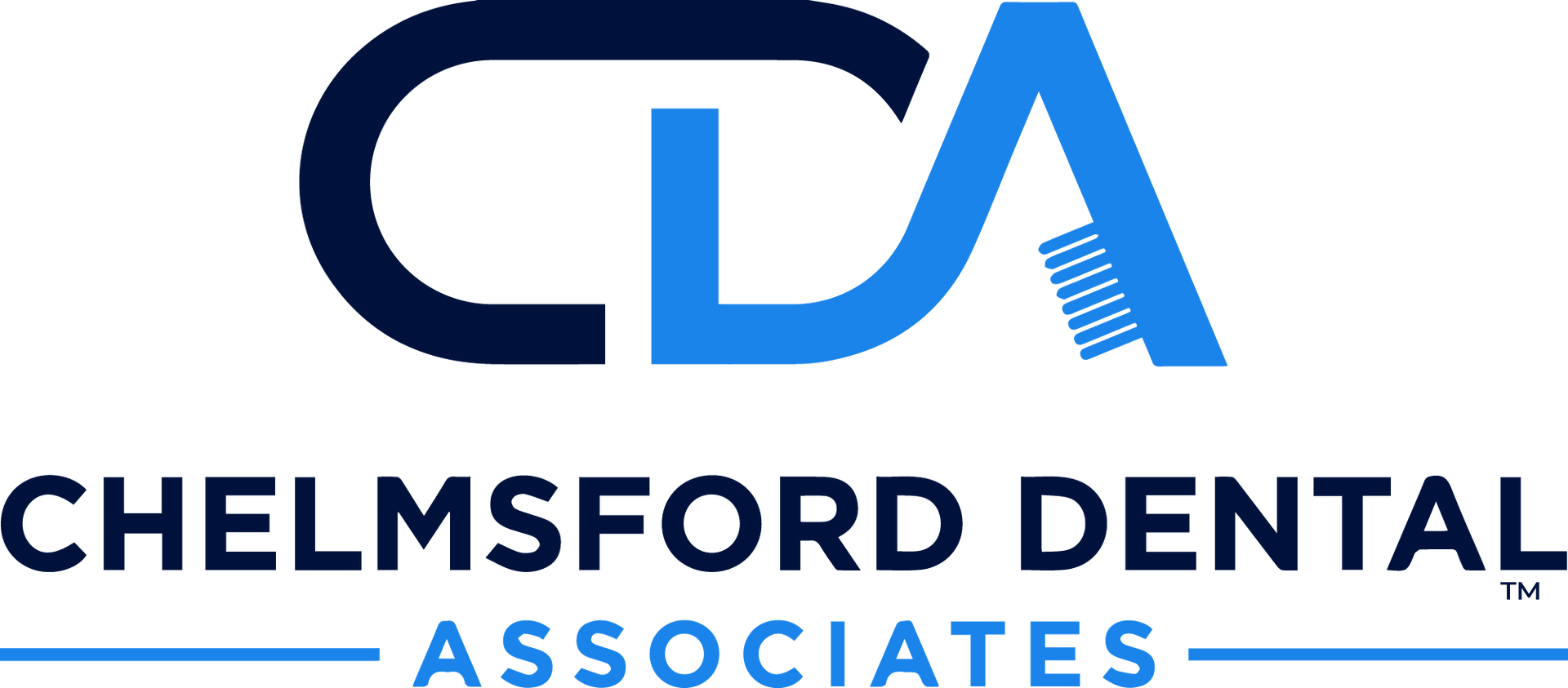Wisdom Tooth Removal Recovery: Pain Management Tips That Work
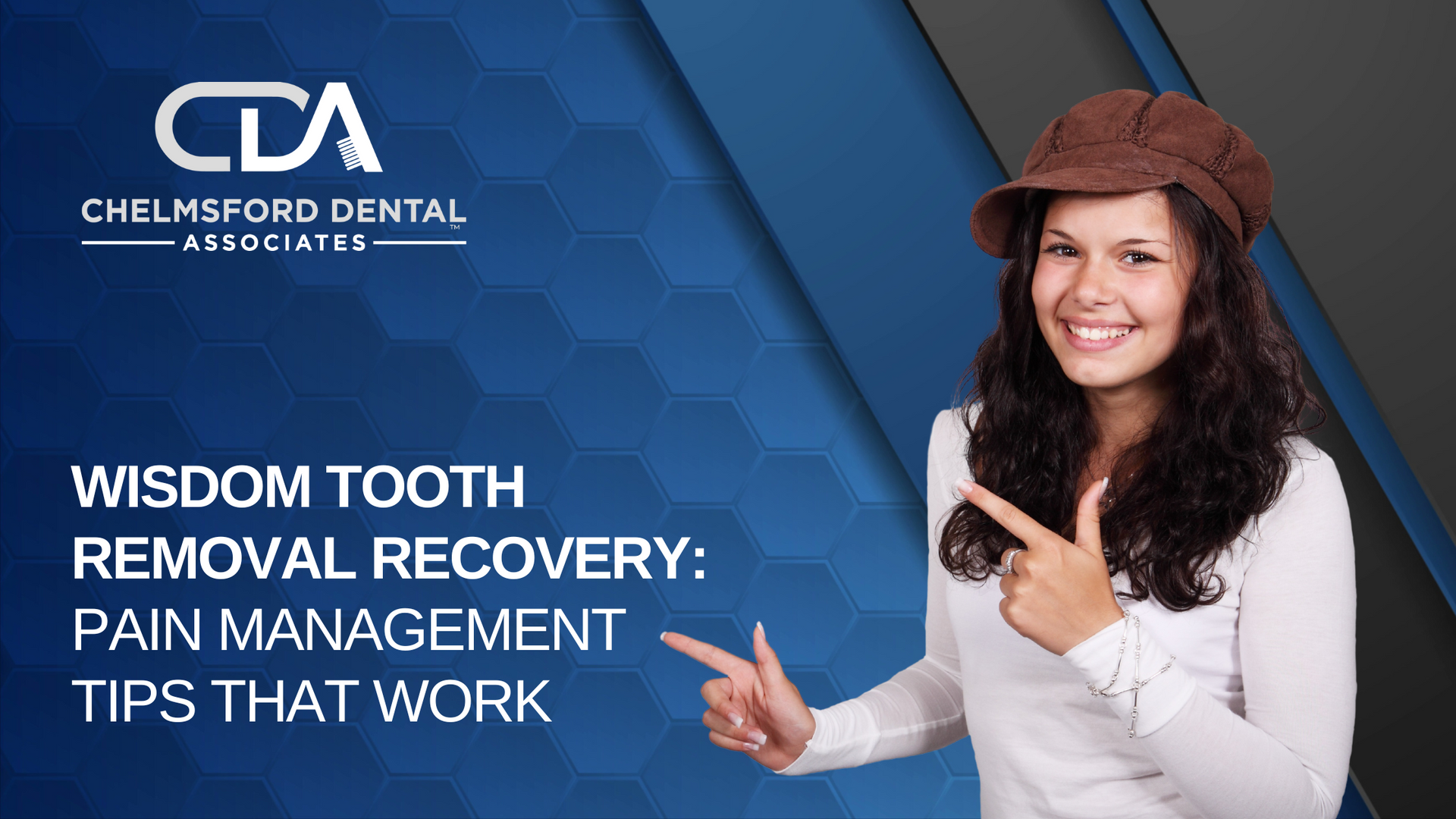
Source: Dr. Marketing
Wisdom teeth, or third molars, are the last teeth to emerge in the mouth, typically appearing in late adolescence or early adulthood. For many, they bring discomfort, crowding, or other complications, making removal necessary. But the decision to extract wisdom teeth often comes with confusion: Is it always necessary? What happens if you delay removal? And perhaps most importantly, how do you manage recovery afterward?
At Chelmsford Dental Associates, we guide patients through the process of wisdom tooth extraction and recovery, helping them make informed decisions and experience a smooth healing journey.
Is Wisdom Tooth Removal Always Necessary?

The idea of wisdom tooth removal often sparks questions about necessity. The truth is, not everyone needs their wisdom teeth extracted. For some, these teeth grow in properly aligned, pain-free, and functional. Regular dental checkups are essential for monitoring wisdom teeth, as their development is not always straightforward.
Why Wisdom Teeth May Require Removal
- Impacted Teeth: Wisdom teeth that do not fully erupt can become trapped under the gums, leading to pain, swelling, and infection.
- Crowding: Limited space in the jaw often causes wisdom teeth to push against neighboring teeth, disrupting alignment.
- Decay or Infection: Partially erupted wisdom teeth are harder to clean, making them prone to cavities and gum disease.
- Cysts or Damage to Nearby Teeth: Impacted teeth can cause cysts, which may damage surrounding structures.
However, some individuals have wisdom teeth that emerge without issues. If the teeth are fully erupted, healthy, and easy to clean, removal may not be necessary. At Chelmsford Dental Associates, we work with patients in Chelmsford to evaluate their wisdom teeth and recommend the best course of action.
What to Expect After Wisdom Tooth Removal
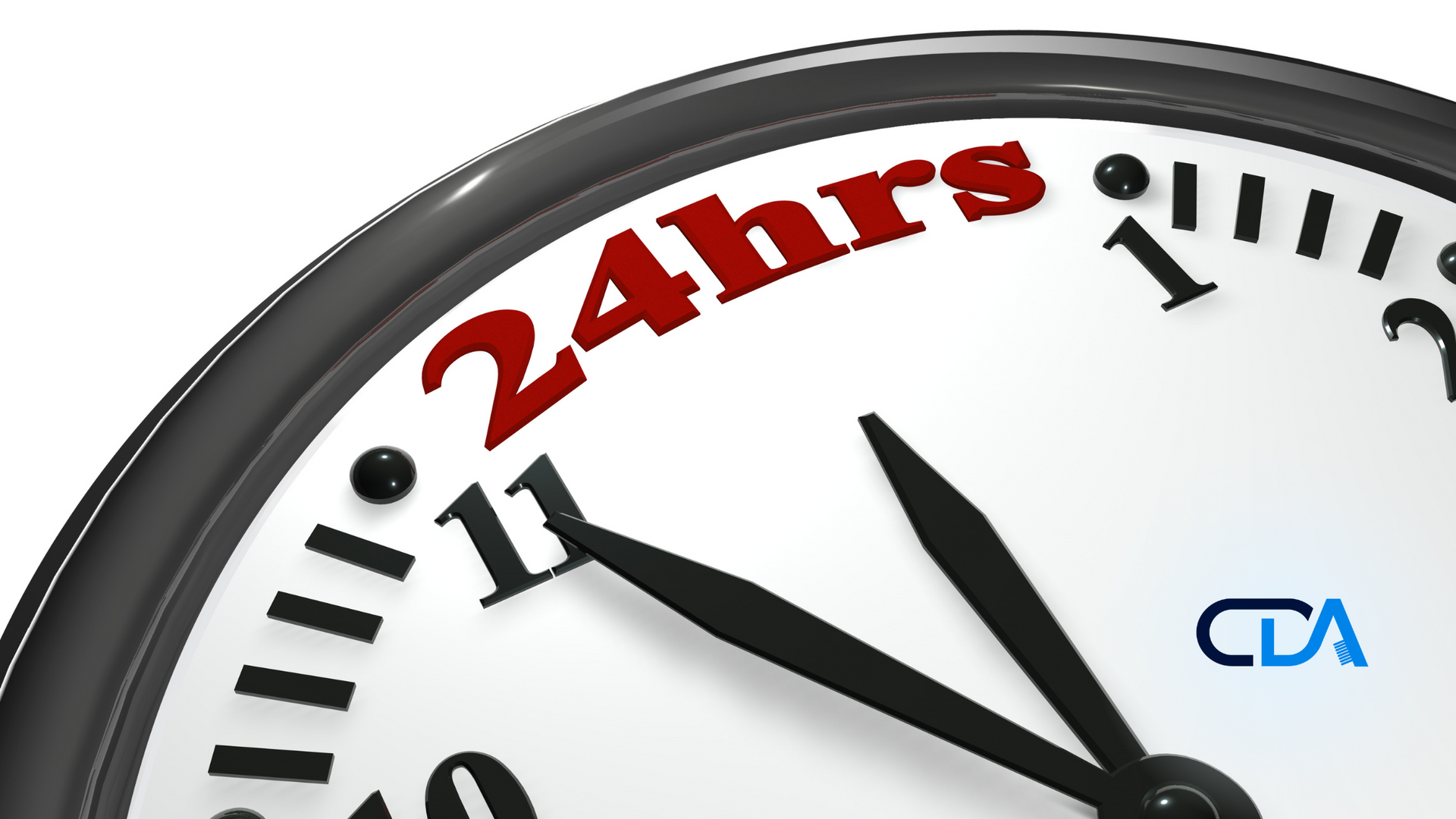
The aftermath of wisdom tooth extraction varies from person to person, but a smooth recovery begins with understanding the healing process. Knowing what to expect and how to care for your mouth ensures faster healing and reduces the risk of complications.
The First 24 Hours
Immediately after surgery, your body focuses on forming a clot at the extraction site. This clot is crucial for healing and protecting the area from infection. During this time, you may experience some bleeding, swelling, and discomfort.
- Bleeding: Minimal bleeding is normal. We will provide gauze to help stop it. Bite gently on the gauze and replace it as needed.
- Swelling: Ice packs applied to the outside of your cheek can help minimize swelling.
- Pain: Pain is typically mild to moderate and can be managed with prescribed or over-the-counter medications.
Managing Your Recovery: Rest, Routine, and Relief
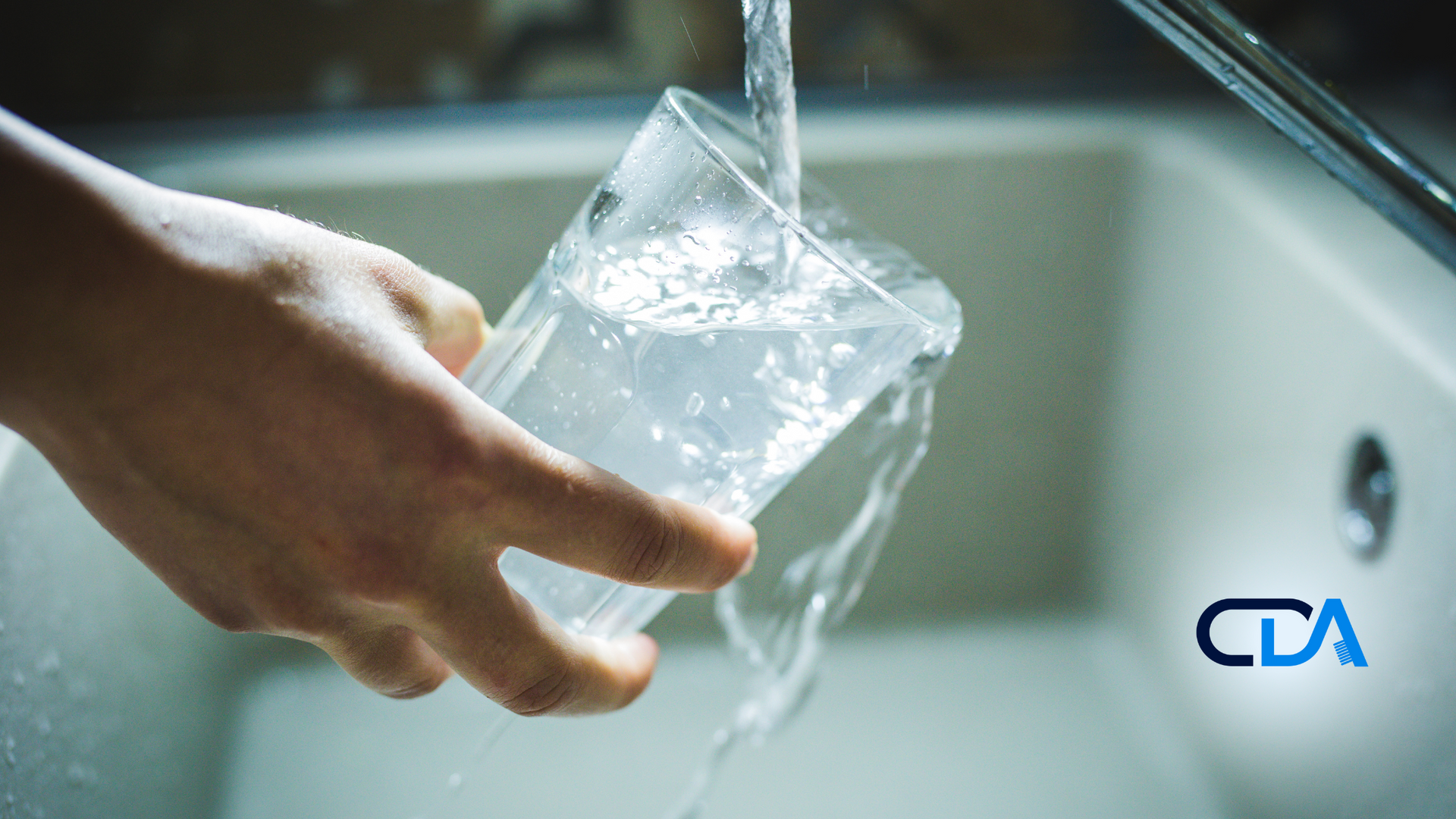
Recovering from wisdom tooth removal requires temporary adjustments to ensure proper healing. With the right approach, you can support your body’s recovery while minimizing discomfort.
Rest Is Key
Allowing your body to rest is vital in the first 48 hours after surgery. Avoid strenuous activities such as heavy lifting or exercise to reduce the risk of dislodging the blood clot, which can lead to dry socket. Elevate your head while resting or sleeping to minimize swelling and promote healing.
Adjusting Your Diet
Soft foods are essential during recovery. Stick to options like yogurt, mashed potatoes, scrambled eggs, and smoothies, which are easy on the extraction site. Avoid hot, crunchy, or sticky foods that could irritate the area or dislodge the clot. Gradually reintroduce solid foods as advised by your dentist or oral surgeon.
Hydration Matters
Stay hydrated by drinking plenty of water but avoid using straws for at least a week. The suction from a straw can disrupt clot formation and slow healing. Sip water directly from a glass or bottle and avoid carbonated or caffeinated drinks in the early recovery stages.
At Chelmsford Dental Associates, we provide personalized guidance to ensure a smooth recovery. Contact us if you have any concerns during your healing process.
How to Sleep Comfortably After Surgery

Sleeping comfortably after wisdom tooth extraction can be a challenge, but proper positioning and care can help minimize discomfort and promote healing. The body does much of its repair work during sleep, making rest an essential part of the recovery process.
Elevate Your Head
Keeping your head elevated while sleeping is one of the most effective ways to reduce swelling and manage discomfort. Use two or three pillows to prop yourself up or consider sleeping in a reclining chair for the first few nights. Elevation prevents blood from pooling around the extraction site, which can cause increased swelling and throbbing pain. Maintaining this position also helps reduce the risk of dislodging the blood clot that forms in the extraction site, which is crucial for proper healing.
Sleep on Your Back
Sleeping on your back is the safest position after surgery, as it minimizes pressure on the extraction area. Sleeping on your side, especially on the side of the surgery, can irritate the site or dislodge the clot, potentially leading to a painful condition called dry socket. Use pillows on either side of your body to prevent rolling over during the night.
Additional Tips for Better Sleep
- Keep Your Mouth Clean: Gently rinse with a saltwater solution before bed to keep the area clean and reduce the risk of infection. Avoid vigorous rinsing, which could disrupt healing.
- Follow Dietary Recommendations: Stick to soft foods and avoid eating too close to bedtime to prevent irritation of the extraction site.
- Avoid Smoking or Alcohol: These can interfere with healing and exacerbate discomfort.
At Chelmsford Dental Associates, we prioritize your comfort and recovery after wisdom tooth extraction. If you are experiencing persistent pain or difficulty sleeping, contact our team for guidance and support.
Preventing Common Complications

Wisdom tooth extraction is a routine procedure, but complications can arise if proper care is not taken. Understanding potential issues and how to avoid them is key to a smooth recovery.
Avoiding Dry Socket
Dry socket occurs when the protective clot at the extraction site becomes dislodged or dissolves prematurely, exposing the underlying bone and nerves. This can cause severe pain and delay healing.
Tips to Avoid Dry Socket
- Avoid smoking or vaping, as they can disrupt clot formation.
- Steer clear of straws and spitting forcefully for the first week.
- Follow the aftercare instructions carefully.
Keeping the Site Clean
While oral hygiene is essential, it is important to be gentle around the extraction site. Use warm saltwater rinses starting 24 hours after surgery to keep the area clean without disturbing the clot. Brush and floss as usual but avoid the surgical area for the first few days.
When to Delay or Avoid Wisdom Tooth Extraction

In certain cases, wisdom tooth extraction may not be immediately necessary. Here are scenarios where the procedure can be delayed or avoided:
- No Symptoms: Wisdom teeth that are fully erupted, healthy, and aligned may not require removal.
- Unfavorable Timing: Significant health issues, pregnancy, or other medical conditions may warrant delaying the procedure.
- Age Considerations: In older patients, the roots of wisdom teeth may be fully developed and close to nerves, increasing the risk of complications during extraction.
Regular checkups ensure that wisdom teeth are monitored closely, allowing you to make an informed decision about whether to proceed with removal.
Returning to Your Routine

Getting back to your normal routine after wisdom tooth extraction depends on the complexity of the procedure and your body’s healing process.
- Daily Activities: Most patients can resume light activities within 2-3 days. However, avoid heavy lifting or vigorous exercise for at least a week.
- Work or School: Many people return to work or school within 2-3 days, if their duties do not involve strenuous physical activity.
- Hydration and Nutrition: Staying hydrated and eating nutrient-rich foods help support energy levels and recovery.
Pain Management Tips: Easing Discomfort After Wisdom Tooth Removal
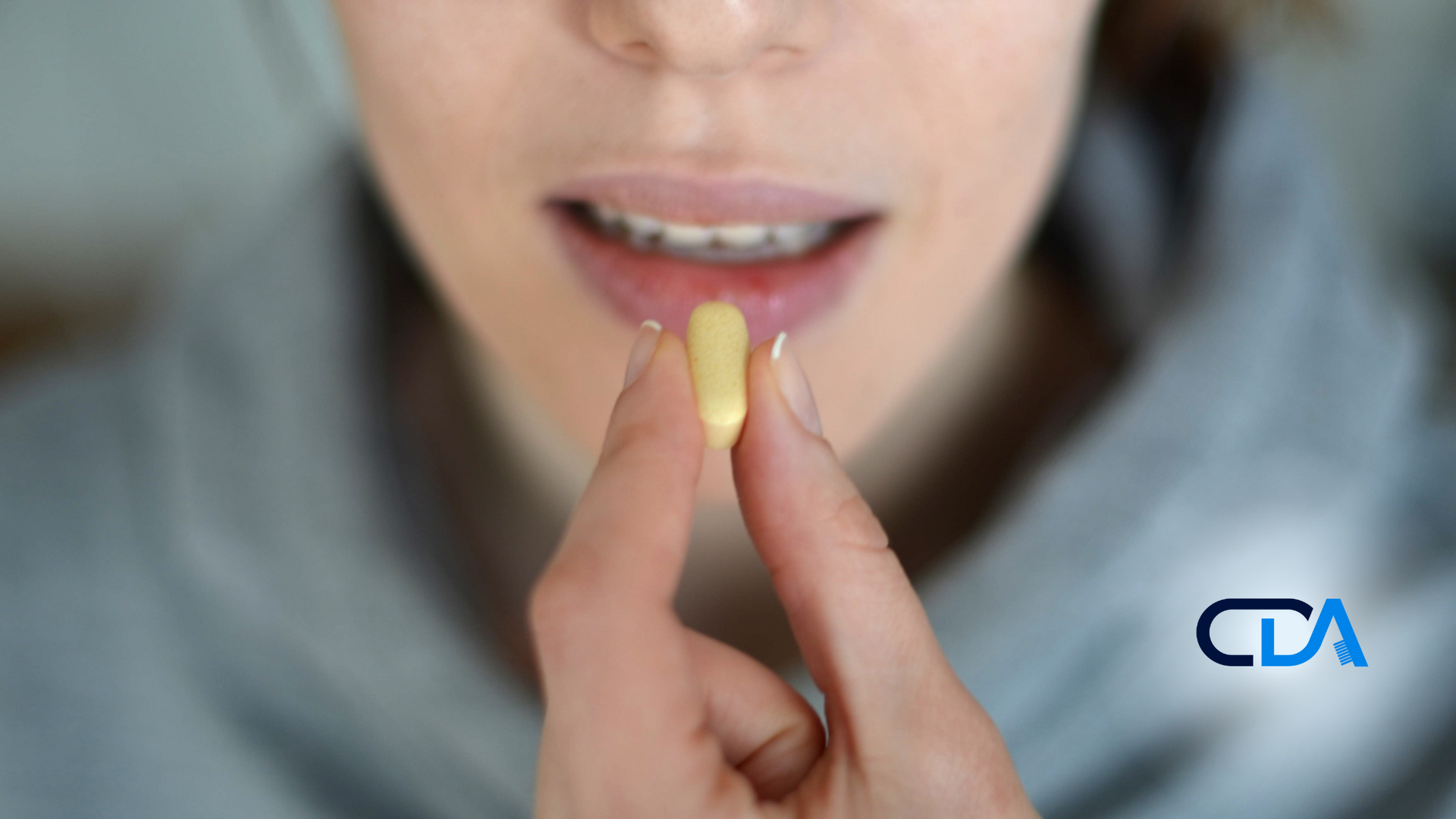
Discomfort is a natural part of the healing process after wisdom tooth extraction, but it can be effectively managed with the right techniques. Proper pain management not only makes recovery more comfortable but also supports healing by reducing swelling and minimizing irritation. At Chelmsford Dental Associates, we provide patients with personalized guidance on managing pain and ensuring a smooth recovery.
Cold Compresses: The First Step to Reducing Swelling
Swelling is most prominent during the first 48 hours after wisdom tooth extraction, and cold compresses are your best defense. Applying an ice pack to the outside of your cheek for 15-20 minutes at a time helps numb the area and constrict blood vessels, reducing both swelling and discomfort. Using cold compresses consistently during the first 48 hours is key to minimizing swelling and preventing additional discomfort.
Medications: Staying Ahead of the Pain
Pain medications play a significant role in post-extraction recovery. We may prescribe pain relievers, or you can use over-the-counter options such as ibuprofen or acetaminophen. Below are some tips for using pain medications:
- Take medications as directed, starting shortly after the procedure to stay ahead of the pain.
- Avoid waiting until the pain becomes severe before taking your next dose. Consistency is crucial to maintaining relief.
- If you are prescribed antibiotics, complete the full course to prevent infection, even if you start feeling better.
Pain medications not only reduce discomfort but also help manage inflammation, further supporting the healing process.
Switching to Warm Compresses: Promoting Healing After 48 Hours
Once the initial swelling subsides, typically after 48 hours, switching to warm compresses can provide additional relief. Warm compresses promote blood circulation, which helps reduce stiffness, relaxes the muscles around the extraction site, and accelerates healing. Warm compresses are particularly helpful for easing any tension in the jaw, which is common after wisdom tooth removal.
Additional Tips for Pain Management
- Avoid Irritating the Extraction Site: Be cautious with brushing and rinsing near the surgical area. Vigorous movements can irritate the site and prolong discomfort.
- Stay Hydrated: Drinking plenty of water supports overall healing, but avoid hot drinks or using straws, as they can disrupt the blood clot.
- Stick to a Soft Diet: Eating soft, cool foods like yogurt, mashed potatoes, or ice cream can soothe the area and prevent additional irritation.
Healing with Confidence

Wisdom tooth extraction does not have to be overwhelming. Understanding the necessity of removal, how to care for your mouth afterward, and what to expect during recovery empowers you to approach the process with confidence. Whether you are managing pain, avoiding complications, or planning your return to daily activities, proper aftercare ensures a smooth healing journey.
At Chelmsford Dental Associates, we provide expert advice and personalized care to make your wisdom tooth removal and recovery as comfortable as possible. Schedule a consultation today to learn more about managing your wisdom teeth and protecting your oral health.
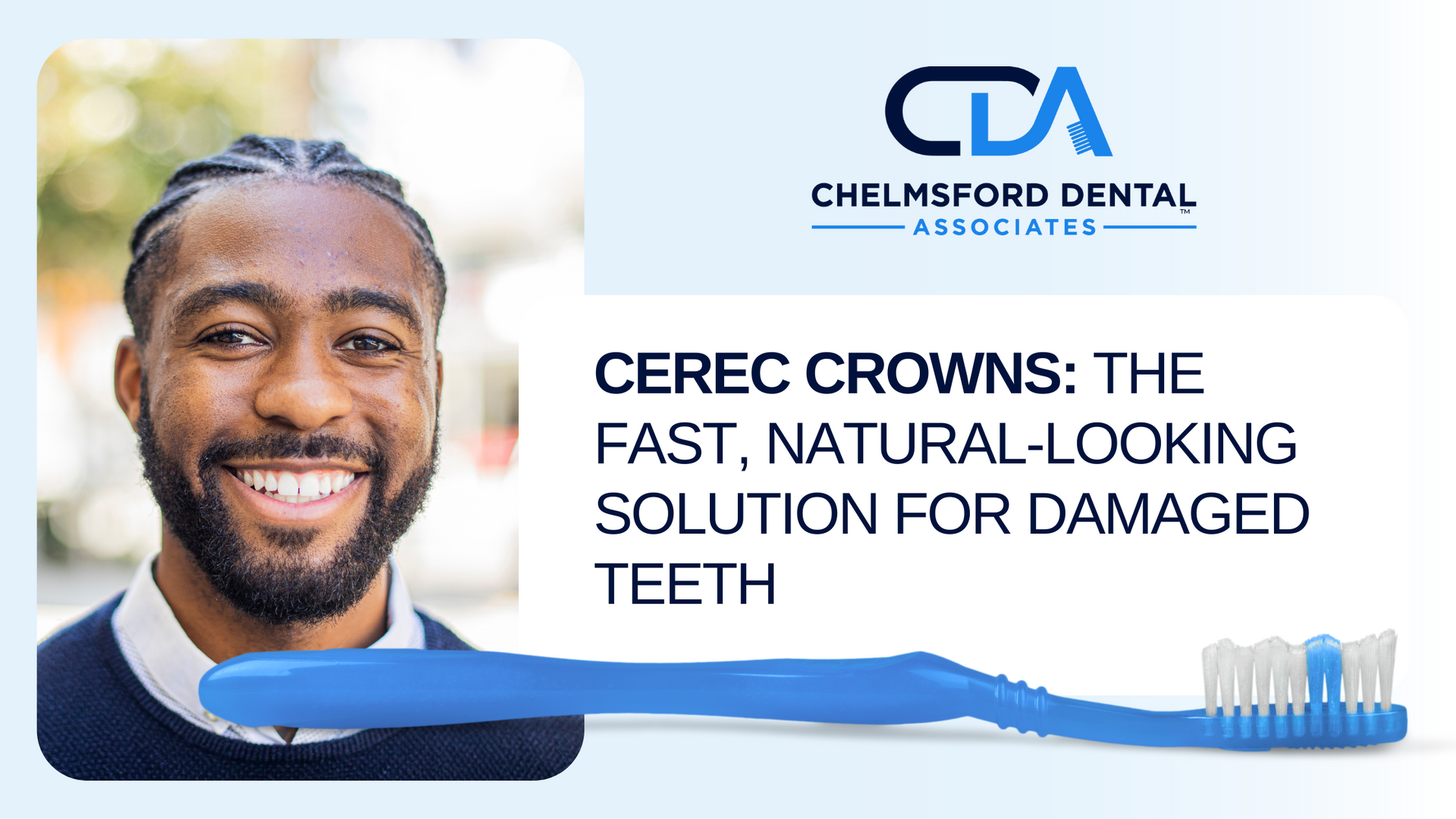
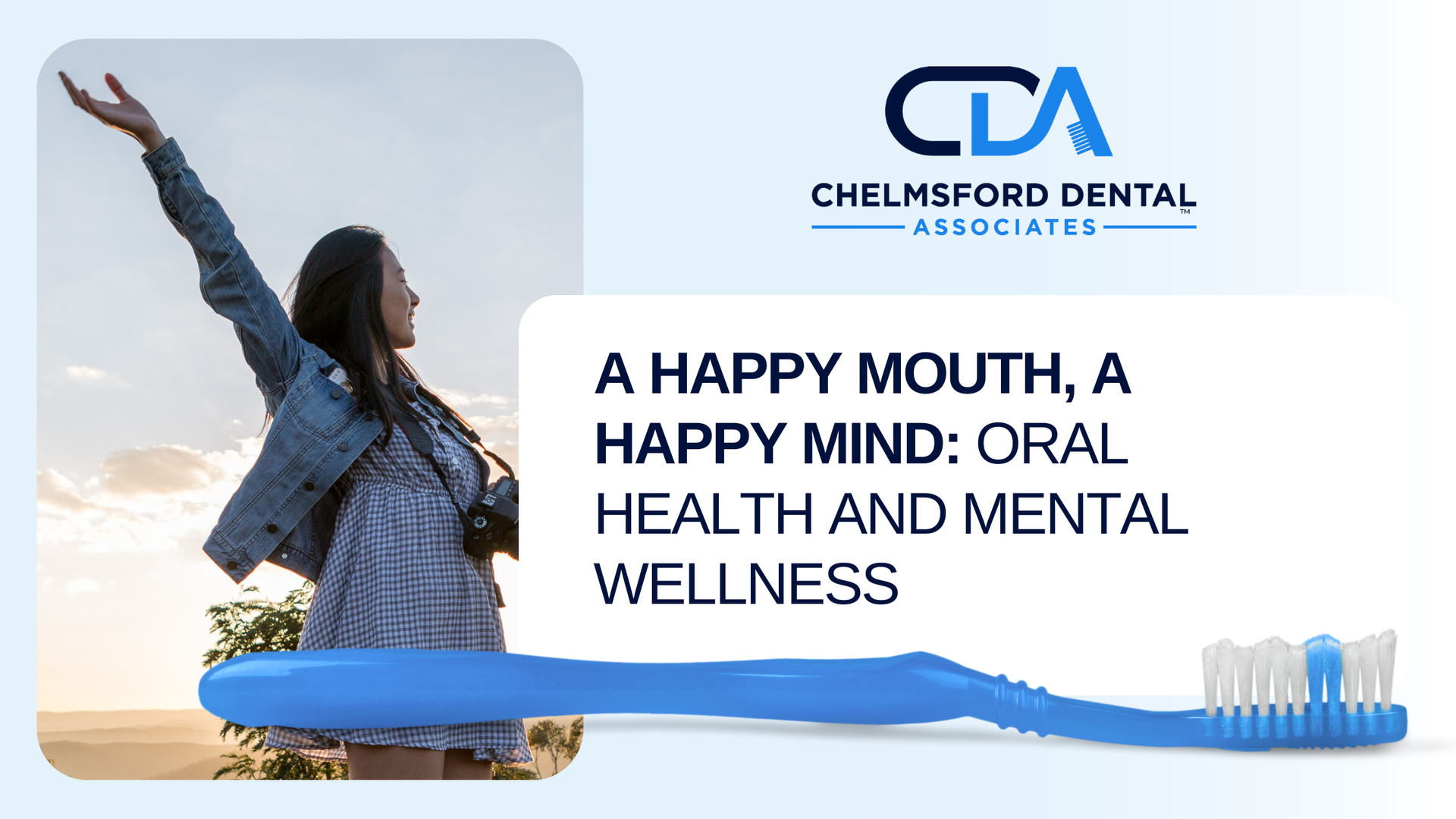
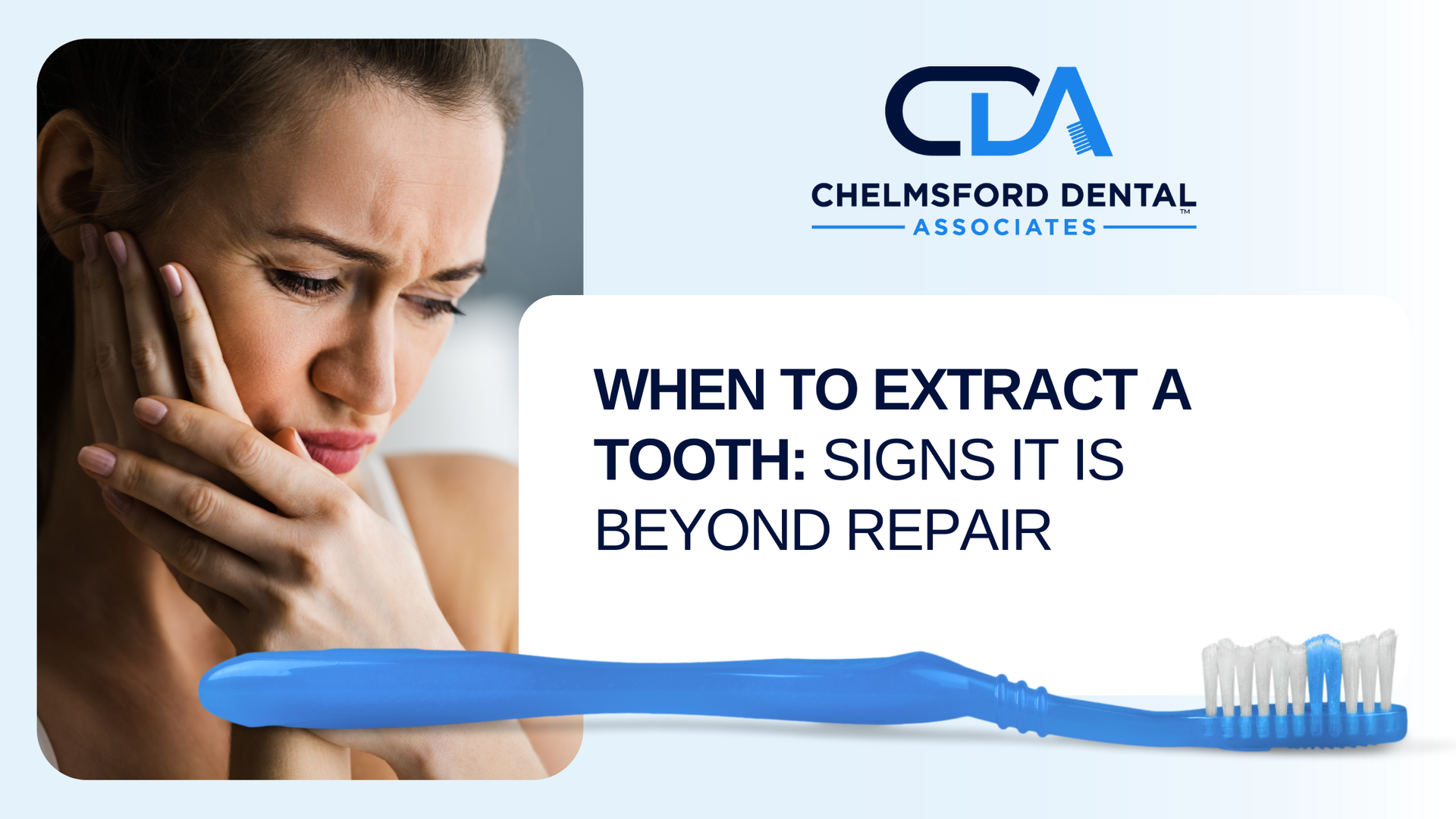
We are the local Chelmsford dentist near you!
It’s Your Smile, Let Us Help You Make It Your Best
Request A Dental Appointment
We look forward to seeing you soon!
Please note, we will do our best to accommodate your schedule.
As a courtesy to all of our patients (in/out of network), we take care of the claim filing and processing. We do have dental financing options for those patients who qualify.
Thank you so much for contacting our dental practice. While we strive to respond to all inquiries right away, we may be away from the desk helping a patient or out of the office. We will do our best to reach back to you shortly.
Please note, if this is a dental emergency, it would be best to call our practice as this is the fastest way to reach us (978) 256-2561.
Please try again later
Chelmsford Dentist
We understand that trying to find a nearby dentist you can trust is difficult, that is why we make it easy for you to work with us.
(978) 256-2561
18 North Rd, Chelmsford, MA, 01824
desk@chelmsforddental.com
Helpful Links
Dental Practice Hours
- Monday
- -
- Tuesday
- -
- Wednesday
- -
- Thursday
- -
- Friday
- -
- Saturday
- -
- Sunday
- Closed
All Rights Reserved | Chelmsford Dental Associates
All Rights Reserved | Chelmsford Dental Associates
Dentist Website Diagnosed, Treated, and Cured by Dr. Marketing Inc
